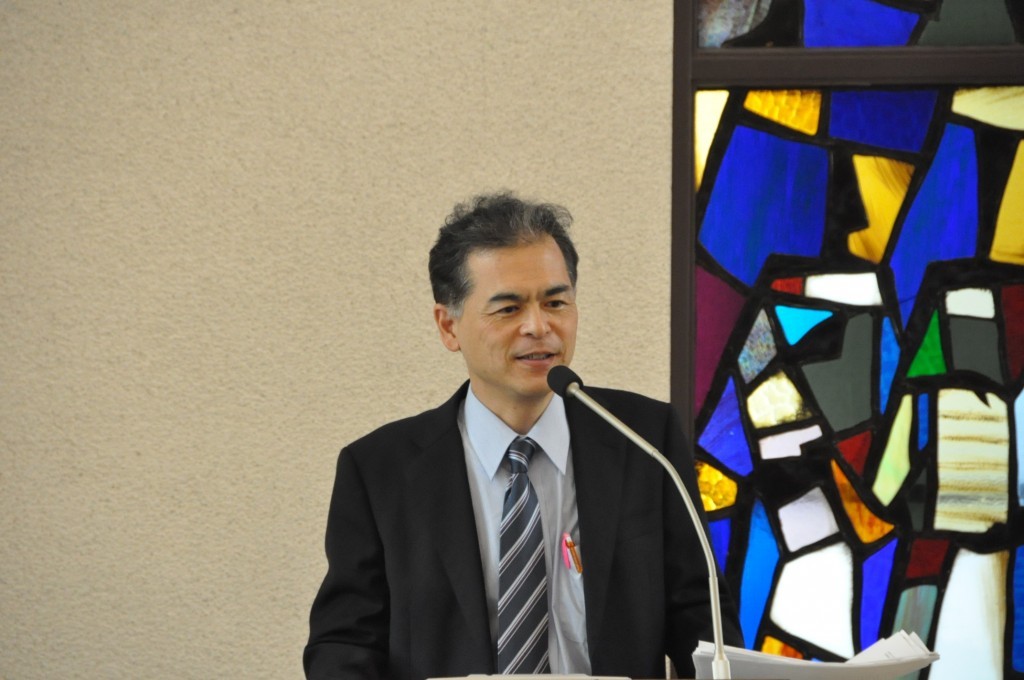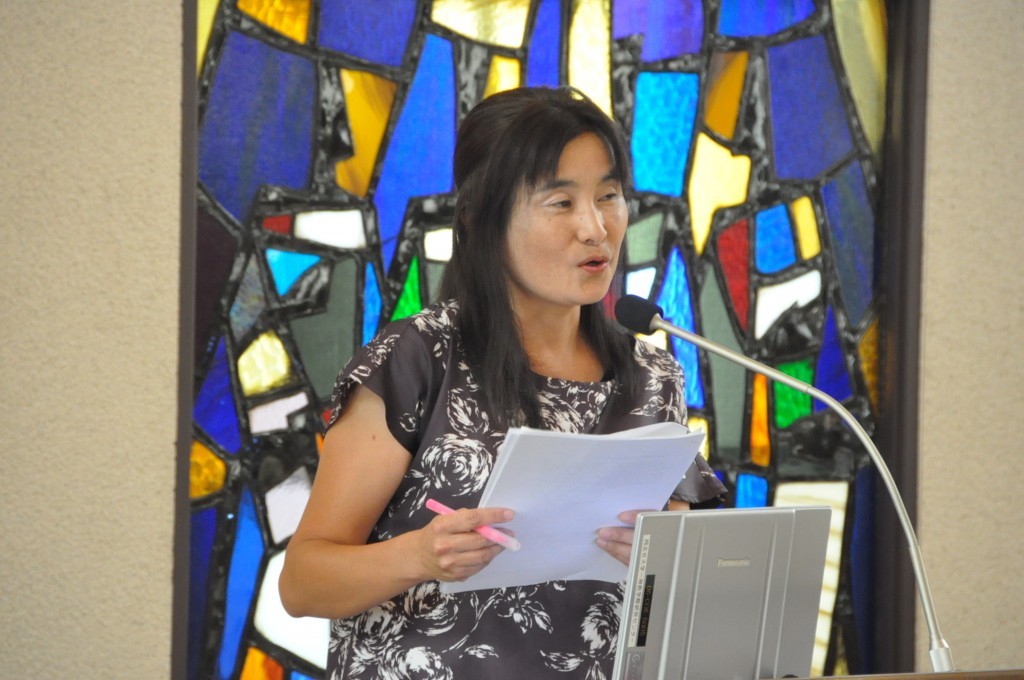Center for Interdisciplinary Study of Monotheistic Religions(CISMOR)Doshisha University
> Public Lectures > Paul and JudaismPublic Lectures
Project of “Jews and Judaism in Japanese Research”
Paul and Judaism
| Date: |
2016/09/24 13:00-15:00 |
|---|---|
| Place: | Divinity Hall Chapel, Imadegawa Campus |
| Lecture: |
Moriyoshi Murayama (Professor of Doshisha University) Etsuko Katsumata (Associate Professor of Doshisha University) |
| Summary: | |
|
This lecture was held as a part of the “Jews and Judaism in Japanese Research” project, and attempted to consider Saint Paul and Judaism from the perspectives of Judaism (Professor Katsumata: “Paul from the Perspective of Judaism and Jewish Studies”) and Christianity (Professor Murayama: “Judaism in the Eyes of Paul”). Professor Katsumata remarked that while studies on Saint Paul have recently shown a strong and rising interest in Paul as a follower of Judaism. In Judaism research, however, Paul is an “outsider,” and he is understood as a person who was converted to the Christianity. The interest in research on Rabbinic Judaism at the time of Paul exists in the land of Israel, which may also reflect the low level of interest in the Judaism of the diaspora. This may be caused by the lack of references to Paul or his birthplace, Tarsus, in Jewish texts at the time. Since Paul was on the boundary between the Jewish and gentile worlds, Professor Katsumata analyzed documents referring to “Polytheism (Obed Kohabim: The Star Worshipper),” “Gentiles (Nokrîy),” and “Christians (Minim)” in the Mishna (the earliest compilation in the Judaic texts of that time and was the best compilation of the norms of Jewish life). Because the Mishna often uses the word “pagan (obed kohabim),” it is thought that this shows that they were self-aware in differentiating themselves as monotheistic from the others, whom they perceived as “polytheistic”. This use implies that they had various forms of contact and discussions with those pagans in their everyday lives. Additionally, among the various rules on dealing with the pagans, it was understood that the pagans were exempt from many laws that the Jews had to follow. In other words, on the borders of the pagan world, many laws imposed on the Jews were not themselves unconditional, but were self-consciously meant to be followed because of their being as Jewish, and it is thought that this is where the interpretation of faith and deeds began to change. She pointed out that this was in the background of Paul’s comprehension of the laws as in, for example, “there is nothing unclean of itself” (Romans 14:14). Professor Murayama explained that there are many denominations within Judaism, and without drawing from special perspectives such as Paul’s Christian conversion experience or his Epistles focusing on the end and walking through the intermediate phase, it is impossible to have a more accurate understanding of Paul. He then examined how Paul re-interpreted theology and the Old Testament (the Septuagint), which was shared with various denominations of early Judaism. First, Professor Murayama explored what kind of re-interpretation was given by Paul regarding gentiles and faith, especially by looking into the gentile pilgrimage within the theological ideology of Judaism that Paul inherited. According to Professor Murayama, Paul advocates for the importance of ‘circumcision of the heart’, and not the ‘circumcision of the flesh’ (Jeremiah 4:4, 9:25; Deuteronomy 10:16). According to Professor Murayama, such an ideology eventually laid the foundation of Christianity as a world religion, all the way to the perfection of universal Judaic doctrine with its sights set on the salvation of gentiles. Next, in order to understand the Judaism from Paul’s perspective, he studied the Pauline epistles from such perspectives as God’s judgment, observation of laws, the conferment of the Word of God, the chosen people, and a sense of brotherhood and family. Furthermore, he closely examined the common features of early Jewish ideology and Paul’s theology, and Paul’s references to the Old Testament. Our understanding of religion has been overly affected by the history of tension and conflict between Judaism and Christianity, and for this reason, much attention has been paid to the differences found in the doctrines of both religions. However, through the examination of historical sources examined in this lecture, they confirmed that Paul’s theology is a continuation and re-interpretation of early Jewish ideology, and does not deny Judaism. For Paul, Judaism was the motherland that nurtured his belief in God and his understanding of history. That is, early Judaic theological ideology was indispensable to the formation of Paul’s theology. Yukiko Kawamoto Postdoctral Fellow, CISMOR |
|
|
20160924poster |
|

